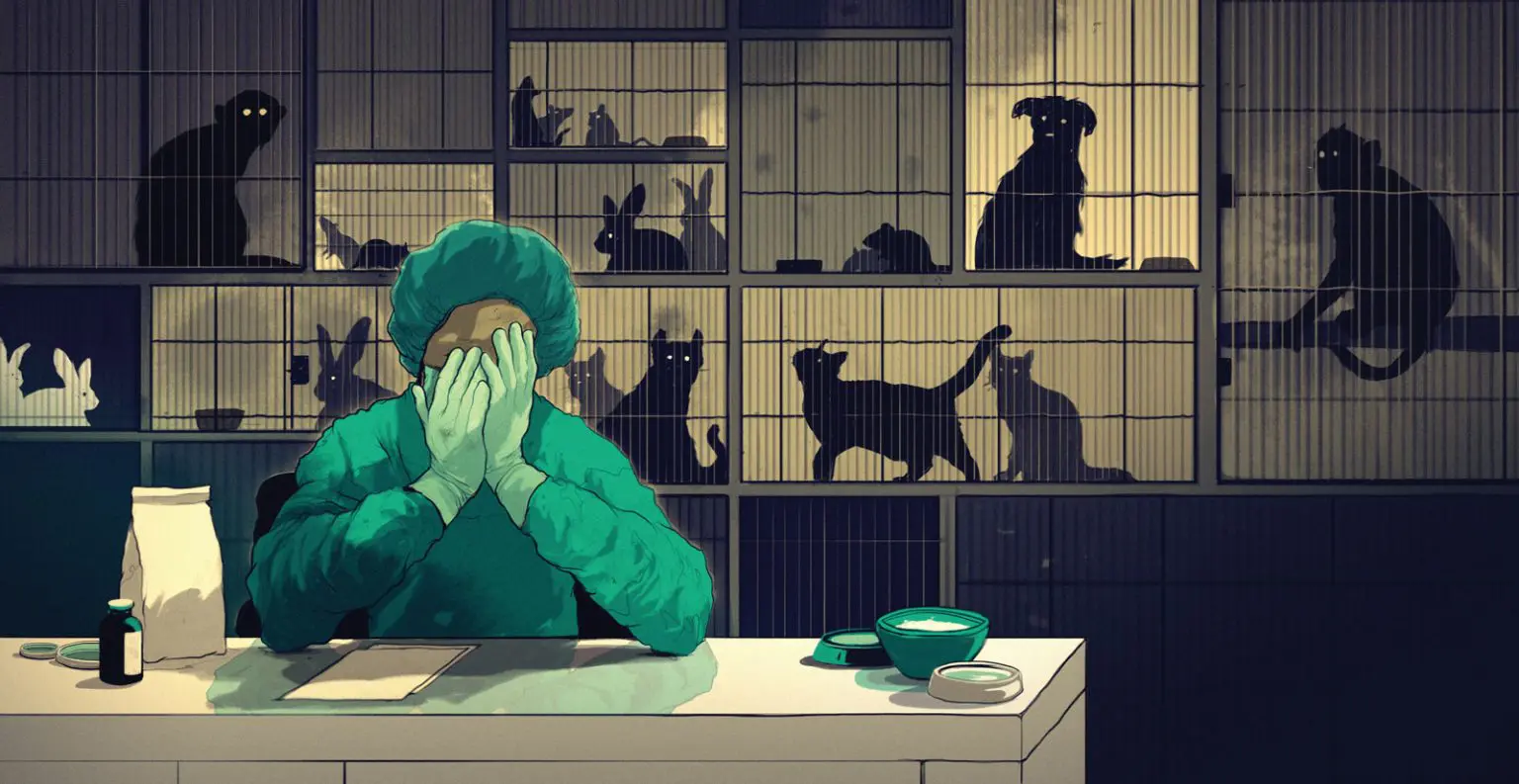Depression is a pervasive mental health condition that affects millions worldwide, leading to varying consequences on individuals, their relationships, and society at large. As we delve deeper into the interplay between depression and animal cruelty, we reveal a disturbing connection that invites attention and understanding. Can depression indeed manifest as animal cruelty? This inquiry not only promises a significant paradigm shift in how we perceive mental health and animal welfare but also piques intrigue and compels us to consider humane alternatives to addressing both issues.
The nexus between psychological distress and aggression is not new. Research has long posited that mental health disorders can precipitate aberrant behaviors, including violence toward oneself and others. However, the connection between depression and cruelty directed at animals raises critical moral and ethical questions. A victim of their own psychological plight may inadvertently inflict harm on society’s most defenseless beings—the animals.
At its core, animal cruelty can take many forms: neglect, physical abuse, psychological torment, and exploitation. These acts arise from a confluence of factors including environmental stressors, learned behaviors, and individual predispositions. Yet, at the heart of many cases lies an underlying mental health issue, often wrestling with depression.
Depression, characterized by prolonged feelings of sadness, lethargy, and hopelessness, can distort perceptions and diminish empathy. Individuals grappling with this ailment may find it increasingly difficult to engage with the world around them, leading to a profound disconnection not only from fellow humans but also from animals. This detachment can facilitate a devaluation of life, manifesting in cruelty—which often serves as a misguided outlet for pent-up emotions.
Furthermore, the paradox of human-animal relationships warrants exploration. For some individuals, animals serve as a source of unconditional companionship, a sweet reprieve from the desolation of depression. Yet, when despair overwhelms, this bond can fray, leading to abusive behaviors. For instance, the frustration of one’s own mental struggle might be projected onto a helpless animal, making it a scapegoat for unaddressed emotional turmoil.
Beyond individual instances of cruelty, societal implications loom large. The perpetration of animal abuse often signals a broader pattern of aggression. Studies indicate that individuals predisposed to violence against animals may also engage in violent acts against humans. By addressing mental health openly and candidly, communities can foster preventative strategies that reduce not only animal cruelty but also human violence.
In understanding this relationship, it is essential to acknowledge that these acts of cruelty are not always deliberate malice but often arise out of a complex web of psychological struggles. The individual may feel trapped within their anguish, seeing no viable escape. As this despair festers, it morphs into aggression, misdirected toward innocent creatures who, in this context, serve as unwilling recipients of emotional pain.
Integrating mental health care into discussions about animal welfare is a requisite step towards addressing these intertwined issues. Developing multi-faceted strategies that encompass therapy, community support, and outreach can empower individuals battling depression to find healthier outlets for their emotions. Animal-assisted therapy has gained traction as an innovative approach that heals not only humans but also fortifies the bonds between humans and animals.
Moreover, educating the public about the signs of depression and animal cruelty is vital. Awareness campaigns can demystify these conditions and encourage proactive dialogue, de-stigmatizing both mental illness and animal welfare issues. By fostering an environment where individuals feel safe to discuss their struggles, we not only aid in recognizing potential cruelty but also contribute to early intervention.
Legislation plays an equally crucial role. Stricter laws against animal cruelty, coupled with mental health resources aimed at offenders, create a dual mechanism where both animals and individuals receive care and protection. Such policies could potentially deter acts of violence while simultaneously promoting empathy and understanding towards both animals and humans suffering from mental distress.
This collective response is paramount when we reflect on the cyclical nature of depression and cruelty. Breaking the cycle requires vigilance in recognizing the signs of psychological struggle among individuals who may reveal their trauma through harm to animals. By fostering supportive networks and promoting mental health care, we can usher in a paradigm shift, elevating society’s collective consciousness and value placed on all sentient beings.
Finally, we must remember that each act of cruelty serves as a stark reminder of an individual’s or collective’s pain. Addressing cruelty through the lens of compassion—toward both animals and those suffering from mental health issues—allows for a holistic approach that nurtures well-being on every front. It compels us to rethink perceptions of mental health and its repercussions, fostering a society that advocates for both animal welfare and mental health awareness amidst the shadows of despair. In this, we find the potential for healing—both for animals and for humans navigating the turbulent waters of mental health.








